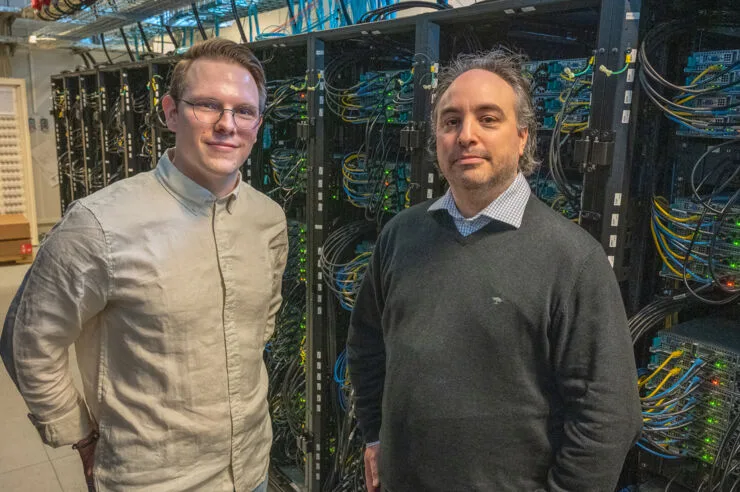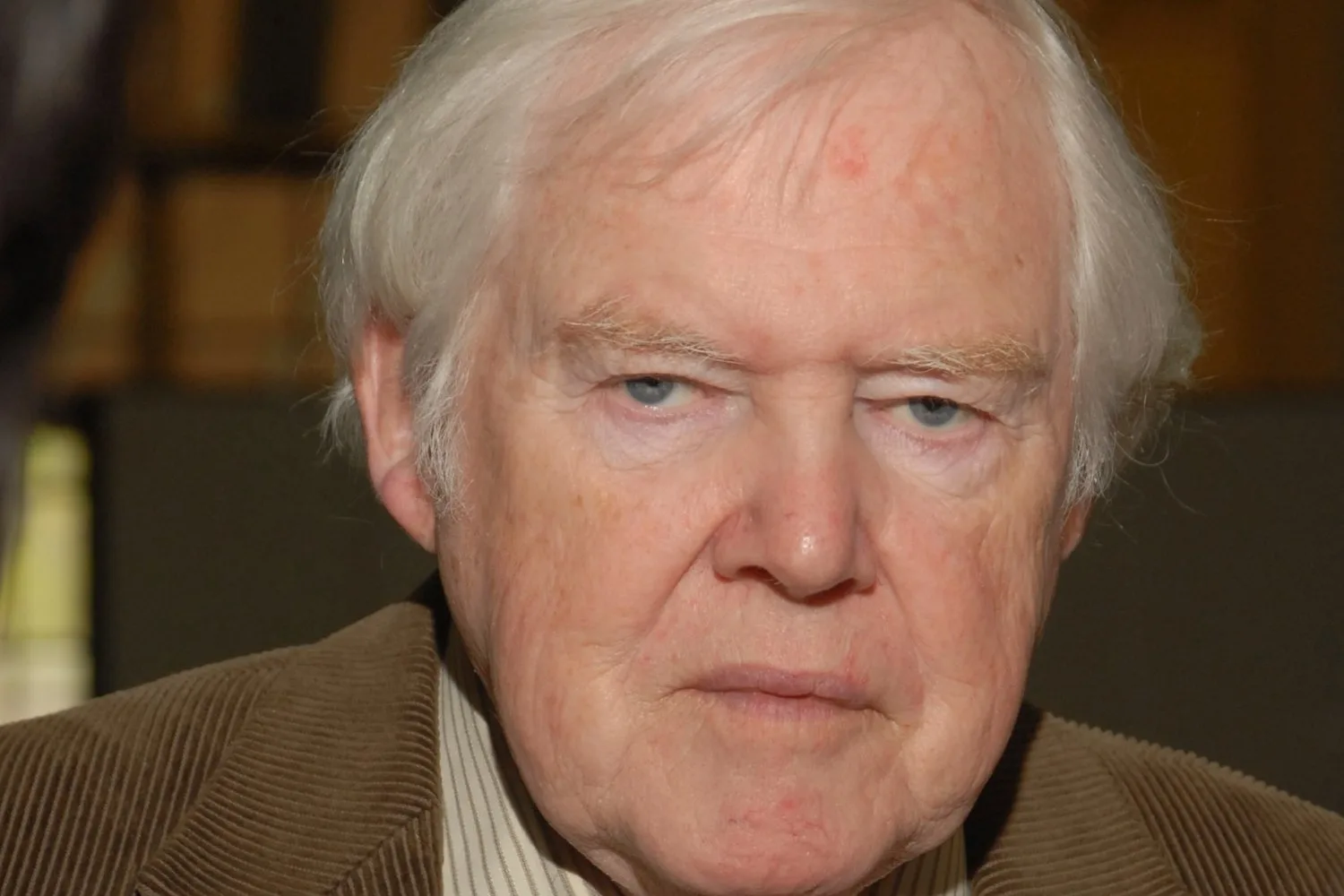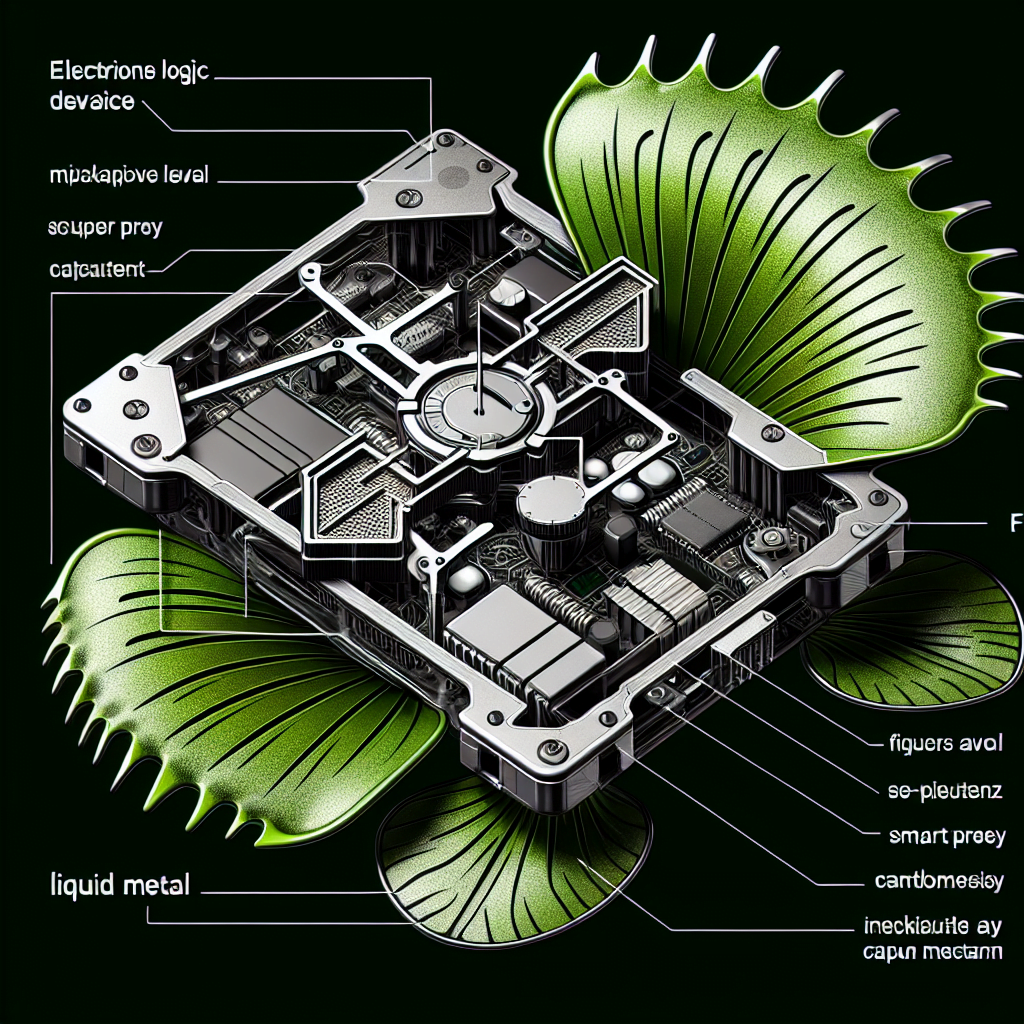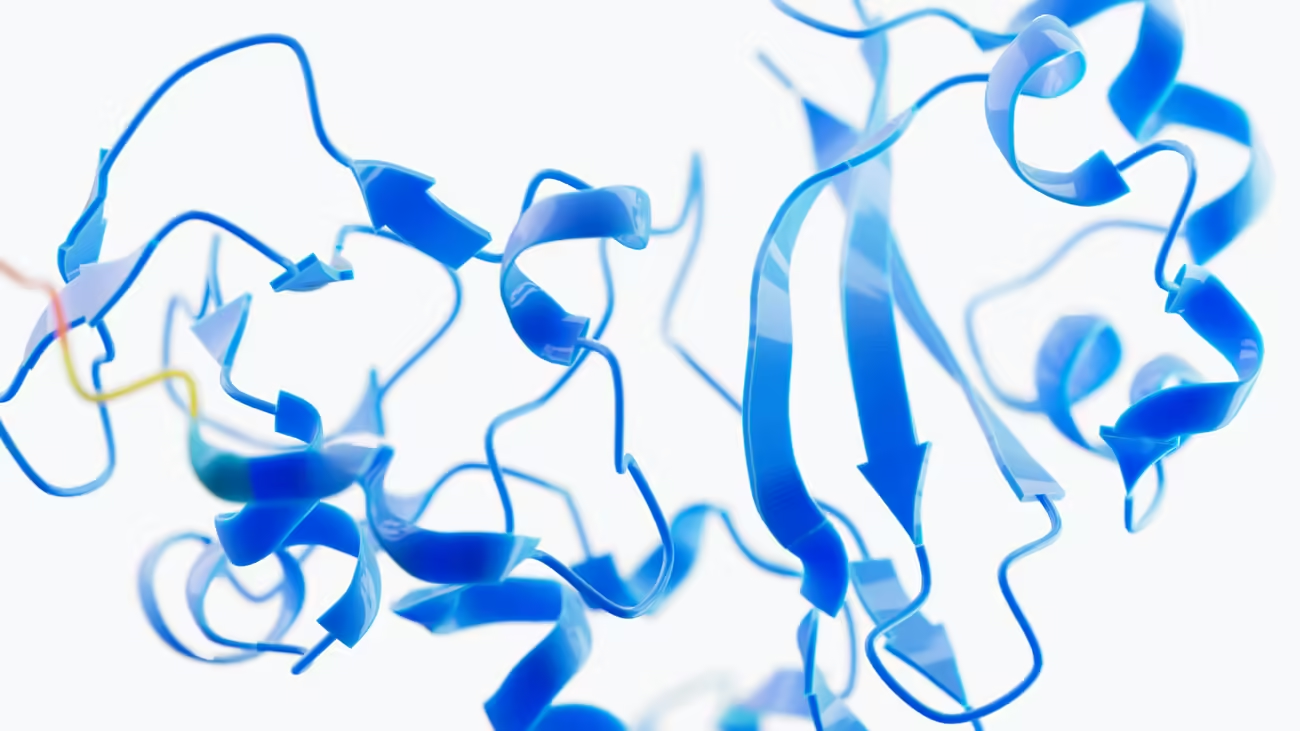Researchers at the National Supercomputer Center at Linköping University simulate atomic behavior in various materials. These simulation data are shared globally via the OPTIMADE standard to train future AI models for materials research. From left to right: Oskar Andersson, PhD student, and Rickard Armiento, Associate Professor. Photo credit: Magnus Johansson.
By Karin Söderlund Leifler
Artificial Intelligence (AI) is accelerating the development of new materials. A prerequisite for AI in materials research is the large-scale use and exchange of materials data, facilitated by a comprehensive international standard. A major international collaboration has now introduced an extended version of the OPTIMADE standard.
New technologies in fields such as energy and sustainability, including batteries, solar cells, LED lighting, and biodegradable materials, require new materials. Researchers worldwide are striving to create materials with specific properties, such as being environmentally friendly and durable. However, creating materials with the exact desired properties presents significant challenges.
« We are witnessing an explosive development where materials science researchers are adopting AI methods from other fields and developing their own models for materials research. Using AI to predict the properties of different materials opens up entirely new possibilities, » says Rickard Armiento, Associate Professor at the Department of Physics, Chemistry, and Biology (IFM) at Linköping University in Sweden.
AI Capable of Making Predictions
Today, many demanding simulations are performed on supercomputers to describe how electrons move in materials, resulting in different material properties. These advanced calculations generate large amounts of data that can be used to train machine learning models.
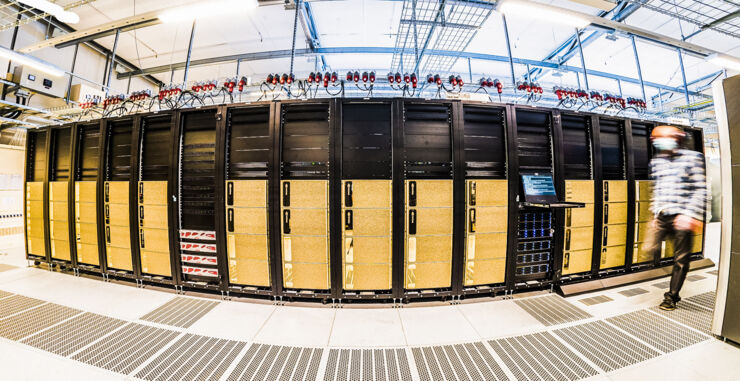 The Berzelius supercomputer. Photo credit: Thor Balkhed
The Berzelius supercomputer. Photo credit: Thor Balkhed
These AI models can then immediately predict the outcomes of new calculations that have not yet been performed, and by extension, predict the properties of new materials. However, enormous amounts of data are needed to train these models.
« We are entering an era where we want to train models on all existing data, » explains Rickard Armiento.
Data from large-scale simulations and general materials data are collected in extensive databases. Over time, many such databases have emerged from different research groups and projects, often functioning like isolated islands. They operate differently and often use properties defined in various ways.
« Academic or industrial researchers who want to map materials on a large scale or train an AI model need to retrieve information from these databases. Therefore, a standard is needed so that users can communicate with all these data libraries and understand the information they receive, » explains Gian-Marco Rignanese, Professor at the Institute of Condensed Matter and Nanosciences at UCLouvain in Belgium.
Global Collaboration
The OPTIMADE (Open Databases Integration for Materials Design) standard has been developed over the past eight years. This standard is backed by a vast international network of over 30 institutions worldwide and major materials databases in Europe and the United States. The goal is to make it easier for users to access both well-known and lesser-known materials databases. A new version of the standard, v1.2, is being released and is described in a paper published in the journal Digital Discovery. One of the most significant changes in the new version is a greatly improved ability to accurately describe various material properties and other data using common, well-founded definitions.
The international collaboration includes the EU, the UK, the USA, Mexico, Japan, and China, as well as institutions such as the École Polytechnique Fédérale de Lausanne (EPFL), the University of California at Berkeley, the University of Cambridge, Northwestern University, Duke University, the Paul Scherrer Institute, and Johns Hopkins University. Much of the collaboration takes place during meetings with annual workshops funded by the CECAM (European Centre for Atomic and Molecular Calculations) in Switzerland, with the first funded by the Lorentz Center in the Netherlands. Other activities have been supported by the Psi-k organization, the NCCR MARVEL competence center in Switzerland, and the e-Science Research Center (SeRC) in Sweden. Researchers in the collaboration receive support from various funders.
Read the Full Research Article
Developments and Applications of the OPTIMADE API for Materials Discovery, Design, and Data Exchange, Matthew L. Evans, Johan Bergsma, Andrius Merkys, Casper W. Andersen, Oskar B. Andersson, Daniel Beltrán, Evgeny Blokhin, Tara M. Boland, Rubén Castañeda Balderas, Kamal Choudhary, Alberto Díaz Díaz, Rodrigo Dominguez García, Hagen E, Eckert Kristjan Eimre, María Elena Fuentes Montero, Adam M. Krajewski, Jens Jørgen Mortensen, José Manuel Napoles Duarte, Jacob Pietryga, Ji Qi, Felipe de Jesús Trejo Carrillo, Antanas Vaitkus, Jusong Yu, Adam Zettel, Pedro Baptista de Castro, Johan Carlsson, Tiago FT Cerqueira, Simon Divilov, Hamidreza Hajiyani, Felix Hanke, Kevin Jose, Corey Oses, Janosh Riebesell, Jonathan Schmidt, Donald Winston, Christen Xie, Xiaoyu Yang, Sara Bonella, Silvana Botti, Stefano Curtarolo, Claudia Edmundol, Luentes Fuentes Cobas, Adam Hospital, Zi-Kui Liu, Miguel AL Marques, Nicola Marzari, Andrew J. Morris, Shyue Ping Ong, Modesto Orozco, Kristin A. Persson, Kristian S. Thygesen, Chris Wolverton, Markus Scheidgen, Cormac Toher, Gareth J Conduit, Giovanni Pizzi, Saulius Gražulis, Gian-Marco Rignanese, and Rickard Armiento. Digital Discovery (2024).

Linköping University
